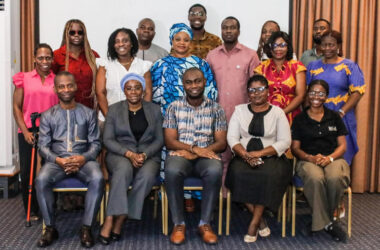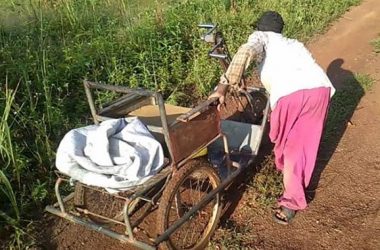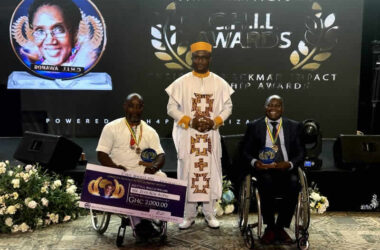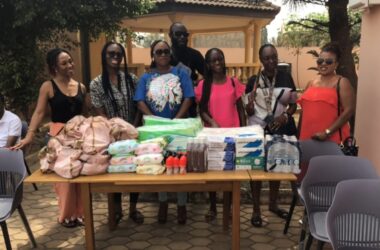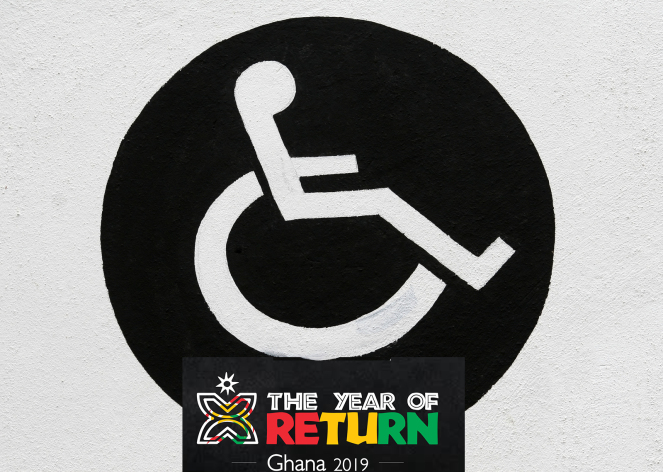
As a Ghanaian who loves her local food and the feeling of belonging, there’s nowhere I’d rather live than in my country. Those of us from Ghana and other West African countries can be fussy when it comes to our food, which is why we often travel with our pepper, smoked fish, etc so we don’t miss out on our food whilst we are away.
Personally, I don’t do that so after a few days away, I find myself longing for my Waakye, Kenkey, Banku, etc. Contrary to the start of this post, it’s not about food; it’s about navigating Accra when you are a visitor with a disability or a chronic illness.
A few years ago, the BBC did a documentary on living with a disability in Ghana and they concluded that it was the worst place to be disabled. I can’t refute their findings but I disagree with their conclusion. Yes, it is difficult to live with a disability in Ghana, but I don’t think it is the worst place on God’s green earth to live with a condition.
2019 marks four hundred years since the official beginning of the slave trade and the Ghana government is urging the descendants of those who were sold into slavery to return ‘home’ – either for a holiday or to settle. Thus 2019 has been coined as “The Year of Return”. Throughout the year, many African Americans and West Indians have visited Ghana, some have had amazing experiences and are planning return trips, others couldn’t wait to shake the dust from their feet. As the year draws to a close we have heard about how all hotels are fully booked, people are turning their homes into AirBnBs to cash in on the expected deluge of visitors who are coming for Christmas.
Navigating your way around can be a bit daunting even when you are able to go everywhere on your own two feet – so when you have a set of wheels or extra legs (crutches), it’s a different story altogether.
Here are some tips to help you if you are on wheels, crutches or even have a chronic illness or invisible disability, during your vacation in Ghana:
- Assume everywhere is disability unfriendly: Apart from the big malls and luxury hotels, almost everywhere else is disability unfriendly. There are few well structured pavements and most of those have been overtaken by hawkers selling their wares. So you might want to rethink bringing that fancy motorized wheelchair or scooter; you’ll end up mostly using it in your hotel or at the mall. Most tourist attractions, especially the castles and fortes are not accessible. They may put a makeshift wooden ramp over the stairs for wheelchair users but usually these ramps are very steep and you will need assistance to get over them.
- Expect people to stare at you in public: Depending on the part of the country/city you are in, you may get a lot more stares than you are used to. Shake it off and go about your business.
- Unwanted assistance is a given: Ghanaians are generally friendly and helpful so when they see you struggling up a flight of stairs in your crutches or trying to navigate a rough patch in your wheelchair, expect to feel a hand under your arm or a push from behind without being consulted. If you do not need/want the help, politely decline it. The person may still hang around until you get to a safe landing , when you get there, smile and say thank you again before going about your business.
- Invitations to church services will flow: Ghanaians are very religious and a large percentage of us go to charismatic churches. They will invariably want to invite you to their churches or a miracle healing crusade so you will be healed from your condition. If that is not your cup of tea, say thank you but you are very happy with your condition so you are declining the invitation. If they persist to the point where you just want to get them off your back, pick a religion or a an orthodox denomination and say you belong to it. Once we know you believe in something, we’ll back off a bit.
- The invisibility cloak shall be yours: You will either be talked down to or completely ignored and talked about with the person you are with. When this happens, firmly speak up and let them know that your mental faculties are in place and you can speak for yourself.
- Political what??: Use rawhide to toughen your skin before you come else you will be surely hurt by utterances, largely due to ignorance. Ableism is a given so expect it! Expect to be referred to as a cripple, a sick person and other politically incorrect terms. When this happens, don’t get too offended ( I know it is annoying and demeaning) rather correct the person, assuming that s/he doesn’t know any better.
- Medical facilities: There are a number of public hospitals, polyclinics and private hospitals across the country. In Accra (and Ghana for that matter), Korle-bu Teaching Hospital is the most resourced in terms of medical personnel and departments, it has the state of the art Cardio Thoracic Center, Burns Unit, etc.. It is also the largest in terms of area and the busiest. 37 Military Hospital and the Greater Accra Regional Hospital, Ridge are well equipped hospitals with emergency wards as well. If you need to see a physio whilst you are here, the Accra Physio and Sports Injury Clinic is one of the best physio centers in the country and you can go there without a referral.
Opposite the Korle bu Teaching Hospital is a row of shops which sell assistive devices and other equipment for those with disabilities. However, the range is somewhat limited. Personally, I have to order my crutch tips from amazon since I cannot get the ones which fit my crutches at these shops.
- Packing tips: If you have a chronic condition and/or are on medication, make sure you pack enough to last the duration you are here. If you are using crutches, be sure to bring spare tips if you intend to do a lot of walking. The terrain isn’t very smooth so the tips wear out quicker than usual. Pack a bath seat if you are not staying in a 4 or 5 star hotel with a standard disabled room. Ask the hotel to send you pictures of the bathroom so you will know whether to pack a bath board (if you need one) or not.
- Disabled Toilets: There are few public buildings with standard disabled toilets – mainly the malls and the hotels. At the malls, sometimes you will find the disabled toilet is locked and the key is with the cleaner, who is usually nowhere to be found. You will end up having to wait for 5-15 mins whilst someone goes to look for him/her. Factor that into consideration when you are going to use the facilities.
If you cannot use a standard toilet and have to go out for the day, be sure to wear your adult diapers. You can either pack them when you are coming or purchase them at the big pharmacies in Accra.
- Weak bladder issues: Traffic in December can be quite horrendous with 30 minute trips lasting as long as two hours plus, so try not to drink too much when you are going to be in traffic.
- Transportation: Wheelchairs can get into BRTs and Mass Metro Transport buses but I cannot guarantee there will be a ramp to get on. So if you have a portable ramp, bring it along, It will also be helpful as most ground floor buildings usually have a step or two to climb to enter. My advice would be to come to an arrangement with a taxi driver who will be your means of transport during the duration of your trip. If you would prefer a female taxi driver, check out Miss Taxi You can also use UBER, BOLT or YANGO ride sharing apps.
- Honking: We honk a lot on our roads so take note of that if you have a high sensitivity to noise or are easily startled.
Well I will end here, if something else comes to mind, I will write another post on the subject. However, if you have any questions, you may comment or send me mail – fbedwei@gmail.com.
Akwaaba and enjoy your stay!
Source: Inspired by Farida

